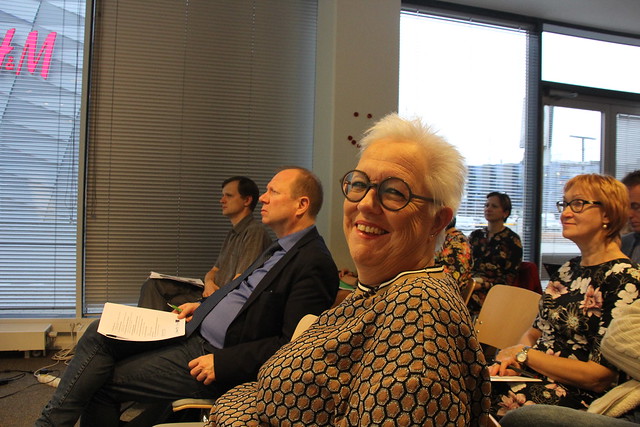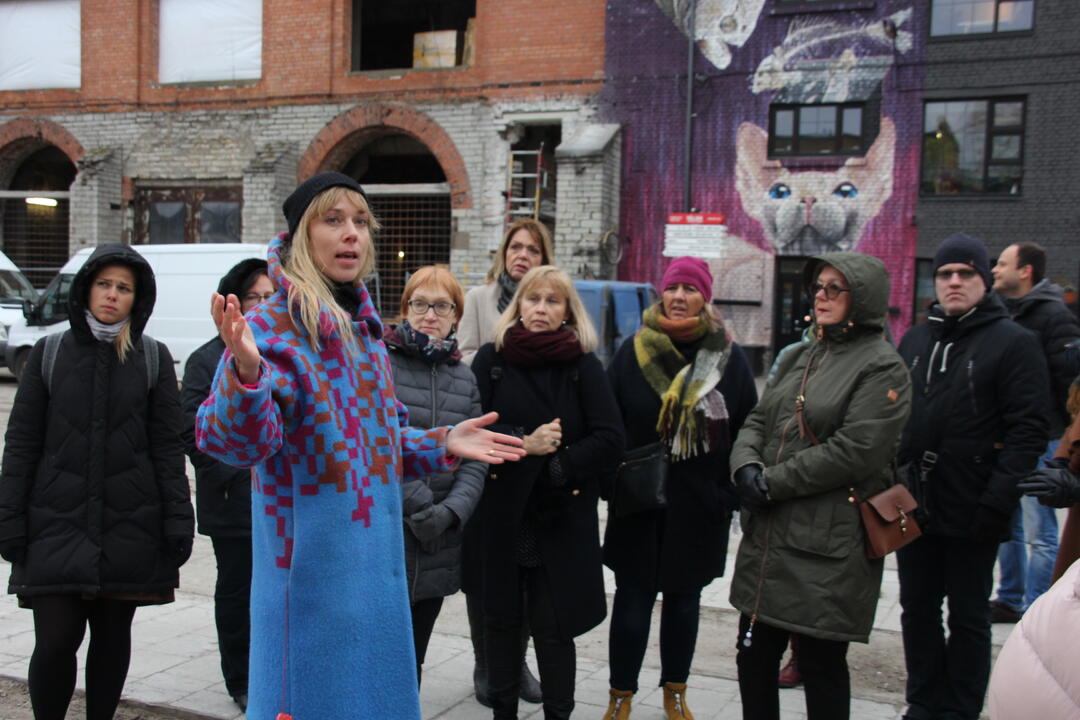Estonia is known as a digital nation. It is probably the only country in the world where 99 percent of the public services are available online 24/7. Furthermore, Estonia is a leader when it comes to free public transport (FPT). To make it short: It is the perfect place to learn about smart mobility, green growth and the benefits of digitalization and therefore the perfect place for the 11th annual conference of the Innovation Circle Network.
High ranked speakers joined this year's conference and provided ground-breaking insights into digital innovation and new transport projects. Allan Alaküla, Head of Tallinn’s EU Office, for example, explained how Tallinn managed to implement free public transport (FPT). “First of all, we wanted to reduce traffic in the city center. Cars do not fit in there”, pointed Alaküla out and talked about the social, the economic and the green aspects of that project. “We lost about twelve million Euros in ticket sales. But we also gained about 30 million Euro thanks to an additional income e.g. in taxes”, explained Alaküla.
Now other cities want to learn from Tallinn and are on the way to implement FPT, too. According to Alakül, FPT will be one of the main topics for the next local elections in Paris. Also in Germany, five cities are about to test FPT. Nevertheless, it is not the main topic on EU level yet.“
As soon as public transport will be free in Tallinn for foreigners, too, it will become another tool to advertise our capital abroad”, pointed Allan Alakül out. In Türi municipality, an ICN partner from the very beginning, inhabitants enjoy FPT since 1st of July. “We saved almost 100.000 Euro in our municipality thanks to that change”, stated Triin Pärna.
While FPT has already been implemented and is showing first results, another very ambitious project aims to connect Estonia and Finland. The idea of FinEst Link is a tunnel between Helsinki and Tallinn. Karel Kose from the Union of Harju County Municipalities talked about the idea and the benefits of this project, that will cost between 13 and 20 Billion Euro.
With great interest, all participants also followed a presentation by Tobias Johannes Koch who gave a Short introduction to Estonia's history as a digital nation. The German who lives in Estonia and works for e-Estonia explained the underlying mechanisms involved in digitizing a society as well as the main challenges and policies. Most participants were surprised about the vast possibilities that e-services offer.

Alf Johansen enhanced the conference with an interesting presentation about the advantages of high-speed trains and how the Nordic regions could benefit from these. Within the TenTacle project, various options for creating a Nordic HSR network have been analyzed.
Different scenarios show how Nordic cities such as Oslo, Stockholm, Copenhagen, and Gothenburg would benefit from a Nordic High-Speed Railway Network. Not to forget the positive effect on the environment since these fast connections could reduce the already existing heavy air traffic. Alf Johansen also pointed out that a Nordic HSR Network plays an important role when it comes to the global competition.
The participants also got an overview of different green and smart mobility projects in several ICN partner regions. Such as the biking project Unionsleden that will connect Norway and Sweden with a new biking route. Or the e-biking project in Tartu that will enable citizens to use e-bikes thanks to a new service that will be implemented next year. The participants also learned about several green smart mobility projects in Suwalki City, Poland.
Jacek Szulc introduced the low-emission economic plan for the City and talked about the development of bicycle routes. Of particular importance for the city and the region is e.g. the project „Bicycle trails in Eastern Poland” that was implemented in 2013 to 2015 to create a Green Velo cycling route. (More online: www.greenvelo.pl). Right now the city is constructing a ring road for Suwalki to move transit traffic out the city center. Furthermore, the city has plans to improve the public transport system.
The two-day get-together ended with an inspiring visit at Tallin's creative and cultural center Telliskivi, where innovative Start-ups and talented young Estonians set new standards in design, fashion, theater, and art as well as in foods. The perfect finale for a very inspiring and trendsetting conference that was marked by an enthusiastic atmosphere. There is no doubt that ICN lived up to its Name with its 11th annual conference!
Please feel free to download the presentations if you want to learn more about this year's topics.

